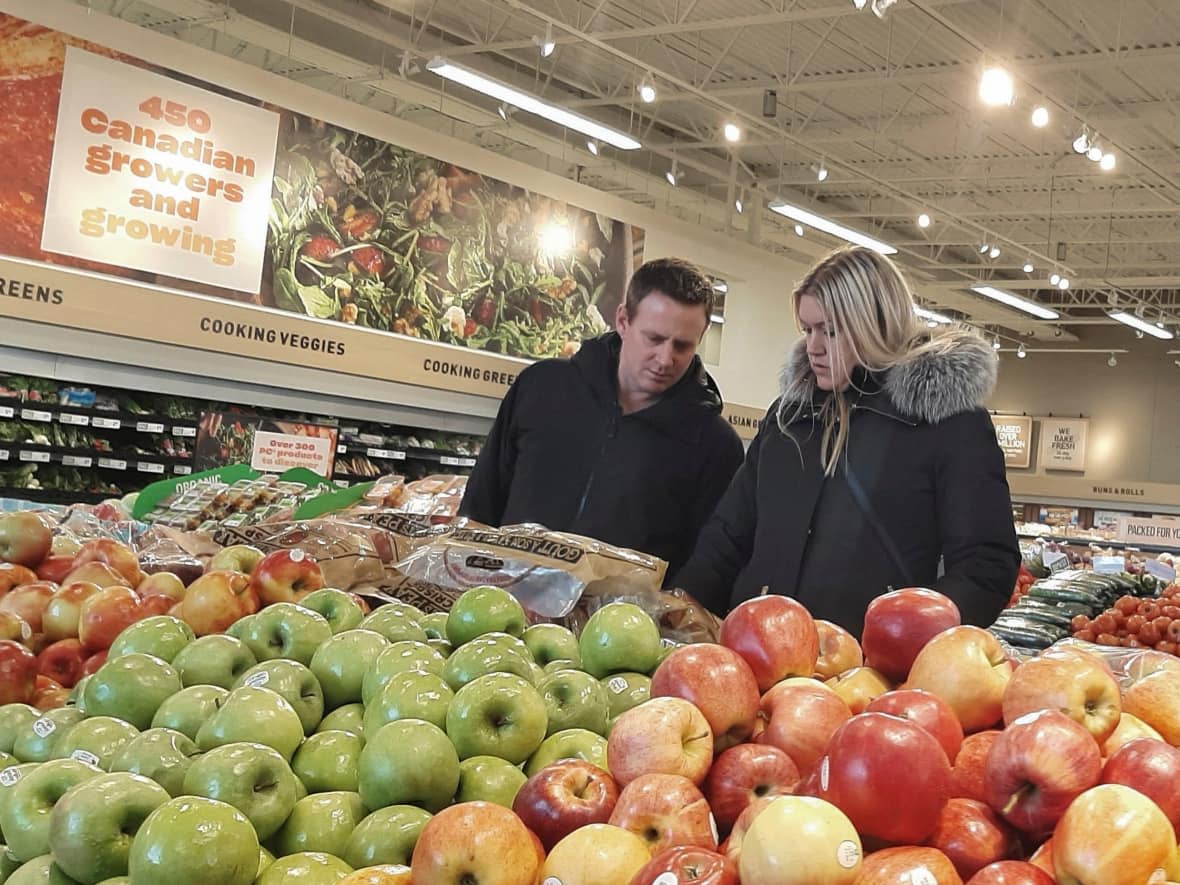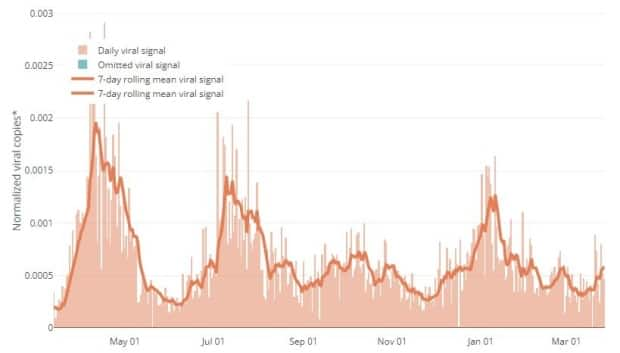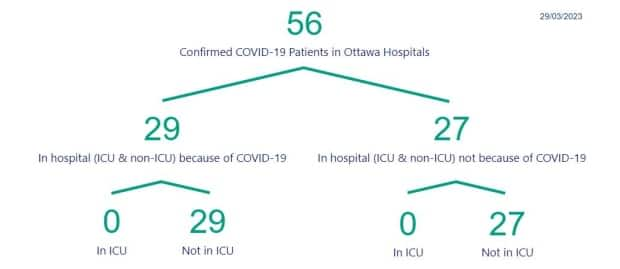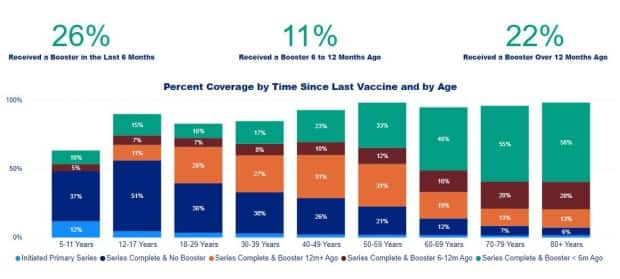Rising wastewater readings stick out in otherwise calm COVID picture

Recent developments:
Ottawa's COVID-19 numbers are mostly stable or dropping.
One exception is wastewater, where average reading are very high.
Four more people with COVID have died in the region.
The latest
Ottawa Public Health (OPH) says the city's COVID-19 picture is generally stable at moderate to very high levels, mostly below where they were to start the month.
Experts recommend people wear masks indoors and, in Ontario, in the days after having COVID symptoms. Staying home when sick and staying up to date with COVID vaccines can also help protect vulnerable people.
Wastewater
Data from the research team shows the average coronavirus wastewater level has been rising for about two weeks to its highest point since early February.
The most recent data is from March 27. OPH now considers this level to be very high.

Hospitals
The number of Ottawa residents in local hospitals for COVID-19 is stable at 18, and has been for about about six weeks.
One patient is in intensive care.
A separate count that includes patients who tested positive for COVID after being admitted for other reasons, those admitted for lingering COVID complications, and those transferred from other health units is dropping to its lowest point of 2023.

Tests, outbreaks and deaths
Ottawa has 15 active COVID outbreaks, fewer than in early March. According to OPH, that number is considered moderate.
The city's COVID-19 test positivity rate drops to around nine per cent, lower than where it started the month.
OPH reported 66 more COVID cases since Tuesday and the deaths of three people who had COVID, all age 70 and older.
Vaccines
Twenty-six per cent of Ottawans age five and older have had a COVID-19 vaccine dose within the last six months, as is generally recommended, with older age groups having higher rates.
That translates to about 775,000 people in that age range without the recommended vaccine protection. It does not factor in immunity from getting COVID.

As of the most recent weekly update, 85 per cent of Ottawa residents had at least one COVID vaccine dose, 82 per cent had at least two, 56 per cent at least three and 31 per cent at least four.
Across the region
Spread
Coronavirus wastewater averages are stable in Kingston and in the Eastern Ontario Health Unit (EOHU). They're otherwise out of date or unavailable outside of Ottawa.
The COVID test positivity average in Renfrew County drops to about eight per cent, around where it started March.
The EOHU's COVID risk level remains moderate.
Hospitalizations and deaths
Eastern Ontario communities outside Ottawa report about 30 COVID-19 hospitalizations, with six patients in intensive care.
That regional count doesn't include Hastings Prince Edward (HPE) Public Health, which has a different counting method. Its local hospitalization count is stable.
Western Quebec has 55 hospital patients with COVID, a number that's been been dropping for about a month. One of them is in intensive care. The province also reported the region's 411th COVID death in its weekly report.
Vaccines
The Kingston area's health unit says 24 per cent of its population age five and up have had a COVID vaccine in the last six months. It's also 24 per cent in HPE and unavailable elsewhere.
Across eastern Ontario, between 79 and 90 per cent of residents age five and up have received at least two COVID-19 vaccine doses, and between 52 and 65 per cent of those residents have had at least three, according to the province.


